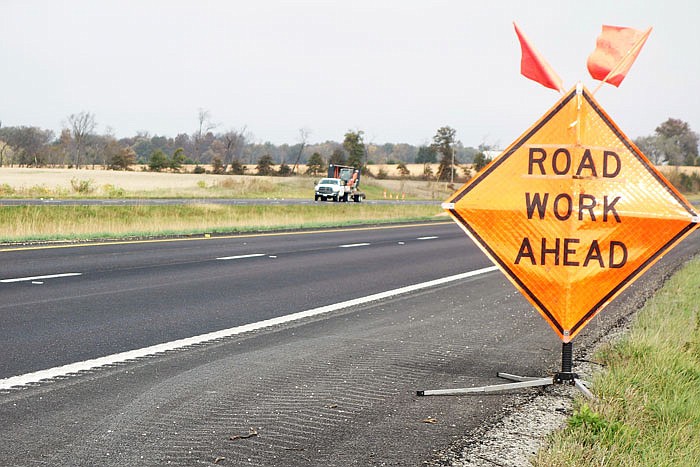Missourians have identified accessibility and safety as some of the top transportation needs in the state, but mounting political pressure could put funding for those projects in jeopardy.
MoDOT is conducting a series of public hearings around the state to gather input on transportation needs, specifically as they relate to the department's High Priority Unfunded Needs list.
As more federal and state money is designated to infrastructure improvements, MoDOT worked with regional planning partners to identify $1 billion in annual transportation needs that have been left unfunded.
From that broader list of needs, MoDOT organized projects into three tiers based on priority. This High Priority Unfunded Needs list is what the department was seeking input on at a public hearing Wednesday night at Jefferson City High School.
After explaining the department's process for identifying needs and working with regional and local planning partners to prioritize those needs, MoDOT officials turned the conversation loose among the roughly 50 people in attendance.
The crowd, which mostly consisted of industry representatives and local leaders, talked through ideas and opinions in smaller conversations and were asked to provide written feedback at the event or at www.modot.org/ submit-comments.
MoDOT Director Patrick McKenna said MoDOT had already received about 100 public comments prior to Wednesday's public meeting in the Capital City, and already some consistent themes have emerged.
In public feedback so far, Missourians have expressed interest in addressing mobility options, ADA compliance, and bicycle and pedestrian safety throughout the state, McKenna said.
Specific problematic roads or bridges in local areas, as well as increasing capacity along highways, are other common needs the public has asked MoDOT to address.
The department is also considering creating a citizen-identified section of the High Priority Unfunded Needs list, he said.
The High Priority Unfunded Needs list and the public comments it garners will be used to guide transportation needs into funded projects as more funding becomes available.
Dustin Boatwright, a commissioner with the Missouri Highways and Transportation Commission, said having a list of needs is beneficial for drawing down more funds from the federal government because it demonstrates need within the state.
McKenna said he expects the department will make substantial progress on the state's unfunded needs list over the next five years as it acts like an extended roadmap.
"This is really helpful for the department as we're planning out our future capital plans and looking to see if some of our work can be combined with some of the unfunded needs in terms of scoping," McKenna said. "It just creates a continuum that's more natural, I think, as we go."
In total, McKenna said the High Priority Unfunded Needs list identifies about $7.5 billion in transportation needs around the state that exist beyond the department's current budget.
The timing couldn't be better, he said, as the U.S. transportation bill will be sending money to the state and the 12.5 cent tax on gasoline went into effect earlier this year.
"We believe that on a spend basis, we're going to have an increase beyond current levels of approximately $500 million a year," McKenna said.
McKenna said MoDOT could have 20-25 percent of the unfunded needs list done in the next five years, which is something the department hasn't been able to do for the past 25-30 years.
He said the department saw the historic transportation investments coming and has been working on identifying needs with local input.
Some state lawmakers, however, have different plans for the department in mind.
Rep. Sara Walsh, R-Ashland, pre-filed legislation Wednesday morning to repeal the gas tax, which went into effect in July.
The tax, which was signed into law by Gov. Mike Parson and had the support of Republican leadership last session, raises the price Missouri drivers pay on gasoline by an additional 2.5 cents per gallon every year until 2025, for a total of 12.5 cents per gallon. The first 2.5 cent increase went into effect earlier this year.
"I was opposed to the fuel tax increase because it silenced the voice of the people on an issue where they should have been heard," Walsh said in a news release. "The legislature moved forward with a plan that increases the tax burden on Missourians who can't afford it, and I think it's clear this increase never would have passed if the people had been allowed to vote."
Walsh said she thinks the tax increase should have been put on the ballot for voters to decide on. She said its repeal has support from constituents and other lawmakers in the General Assembly.
McKenna said the department will defend the gas tax as an essential funding mechanism to maintain roads and bridge conditions and as a way to begin addressing unfunded needs within communities.
MoDOT will need the additional state dollars to match and draw down federal money for transportation projects, he said, which it can't do without funding from the gas tax.
"There are substantial unmet needs throughout the state, there are conditions that need to be addressed and for the first time in decades, we are confident that we have the wherewithal to do so," McKenna said. "What we're going to have to do is have the wherewithal to put down these political attempts, kind of a political opportunism I would say, to repeal the gas tax."
McKenna said it would be unfortunate if the movement to repeal the gas tax gained steam, particularly with the way the legislation was written to provide a waiver for Missourians who save their fuel receipts.
That function, he said, allows every Missourian to vote on the gas tax each year.

